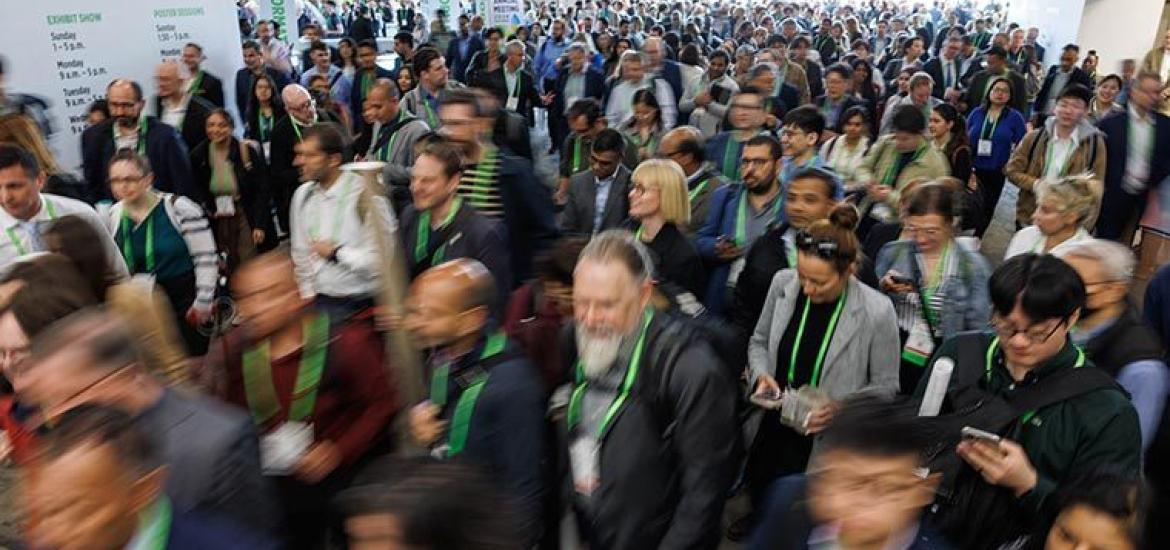
AACR 2024 – BioNTech sees pancreatic promise amid neoantigen delays
When autogene cevumeran works it seems to keep working, but bigger tests for the project have been pushed back.
When autogene cevumeran works it seems to keep working, but bigger tests for the project have been pushed back.

BioNTech and Roche’s personalised neoantigen-based immunotherapy autogene cevumeran still has much to prove, and long-term data in pancreatic cancer, presented yesterday at the AACR meeting, probably won’t move the needle.
True, in the patients in which the project works it seems to continue to work, for as long as three years after therapy. However, responders only account for half the subjects in the 16-patient trial presented yesterday. Bigger tests are coming for autogene cevumeran in controlled studies – but the most advanced of these, in first-line melanoma, has been delayed several times, and is now not expected to read out until the second half of this year.
Pancreatic need
The pancreatic cancer data presented yesterday come from an investigator-sponsored phase 1 trial of adjuvant autogene cevumeran plus Tecentriq and chemo. The AACR data echo those previously reported at ASCO 2022 and published in Nature last year: of 16 evaluable patients, eight developed an immune response to the therapy. In these responders median recurrence-free survival wasn’t reached, while it was 13.4 months among non-responders.
Late last year BioNTech and Roche started a phase 2 study of autogene cevumeran plus Tecentriq, versus Tecentriq alone, in adjuvant pancreatic cancer, and this should give a better idea of the immunotherapy’s prospects in this tough disease.
However, a nearer-term test will come in first-line melanoma, where the Imcode-001 study is set to yield data later this year. This had once been set to read out in 2022, but the timeline has been pushed back several times, with BioNTech blaming the slower-than-expected enrolment on Covid.
Mid-stage studies in colorectal cancer are also ongoing; however, an adjuvant NSCLC trial was withdrawn before enrolling any patients.
BioNTech’s main neoantigen rival is Moderna, whose Merck & Co-partnered mRNA-4157 impressed in the phase 2 Keynote-942 study in adjuvant melanoma. Phase 3 trials of that project have started in adjuvant melanoma and NSCLC and, most recently, cutaneous squamous cell carcinoma.
BioNTech has a lot of catching up to do – a view that won’t be changed by yesterday’s data.
Phase 2 trials of autogene cevumeran
| Setting | Trial name/ID | Sponsor | Regimen | Primary endpoint | Note |
|---|---|---|---|---|---|
| 1L melanoma | Imcode-001 | Roche | + Keytruda vs Keytruda | PFS | Results delayed, now expected H2 2024 |
| Adjuvant colorectal cancer | BNT122-01 | BioNTech | Vs watchful waiting | Disease-free survival | Potential for interim analysis H2 2025/early 2026 |
| Adjuvant PDAC | Imcode-003 | Roche | + Tecentriq + chemo vs chemo | Disease-free survival | Started Q4 2023; no timelines for data given yet |
| Adjuvant NSCLC | NCT04267237 | Roche | + Tecentriq vs Tecentriq | Disease-free survival | Withdrawn (“accrual timelines”) |
Source: OncologyPipeline.
1860













